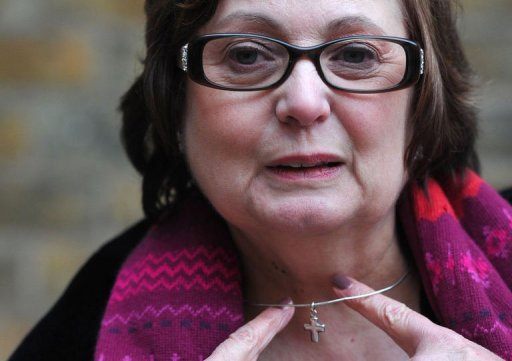Equalities legislation has let down Christians as an investigation has revealed they are too frightened to reveal their religious beliefs to colleagues.
The admission was made by equalities chiefs as Christians reported that when they do declare their faith, whether it be in a professional office environment or on a shop floor, they are often mocked or treated like bigots in a way which those who are openly Muslim would not be treated. Those questioned for the report said their children are even ridiculed at school, the Daily Mail reports.
Almost 2,500 people of all faiths were asked about religion at work for the nationwide study by the Equality and Human Rights Commission, with Christians saying they felt their faith is being pushed out of the pivotal position it has held for centuries in Britain as the cornerstone of life and a cultural cornerstone.
Many say they feel they are being persecuted by the same anti-discrimination and equality laws supported by the equality watchdog, which for years has been accused of acting in favour of minority groups.
There have been numerous high profile cases regarding Christians in the workplace, including Nadia Eweida, a British Airways employee who was told by bosses to cover up a small necklace with a cross on it. Ms Eweida said she was “jumping for joy” after the European Court of Human Rights ruled she was unfairly discriminated against when asked to stop wearing a cross visibly.
And a series of court cases have left many Christians feeling that the law is biased against them, with other ‘rights’ being seen as more important than their own right of freedom of religion. These include the Supreme Court case brought by a gay couple against hoteliers Peter and Hazelmary Bull who declined to rent them a room because they were not married.
And the Commission is also backing a legal claim against a Belfast bakery run by Christians who did not want to bake a cake with a slogan that supported gay marriage.
The report also highlights the case of a law firm where staff were told not to hold an office “Christmas Party” because it could be seen as promoting Christianity.
Organisers were told to advertise the event as an ‘End of Year Party / Christmas Party according to your beliefs’ so not to upset non Christians. It is unconfirmed if the same non-Christians also took offence at having Christmas Day and Boxing Day off as annual leave.
In another case, a girl was called a “religious nutter” in front of her classmates because she was Christian and a boy allegedly arrived home in tears after being “berated” by a teacher for his beliefs on sexuality
The majority of those who responded to the commission’s survey were Christian with 1,030 identifying themselves thus. The next largest group, 188, were atheist with other religious denominations making up the rest of the respondents.
The damning conclusions drawn by the answers were that there was: “A recurring theme among some employees was the pressure they felt they were under to keep their religion hidden at work and feeling discriminated against when it came to wearing religious symbols or expressing their beliefs. This was particularly felt by Christians.
“People reported being mocked for their beliefs, including Christians, who said their colleagues assumed they were bigoted. Some Christian-run services or businesses said they felt in turmoil about behaving in ways that they feared might breach the Equality Act 2010, which protects people from discrimination in the workplace and in access to goods and services.”
The Commission’s chief executive Mark Hammond said: “What came out strongly was the widespread confusion about the law, leading to some resentment and tensions between groups, and anxiety for employers who fear falling foul of what they see as complicated equality and human rights legislation.”
But it was not only Christians who raised concerns, with some humanists and atheists saying they felt upset there were no humanist chaplains at hospital.
Simon Calvert of the Christian Institute – a think tank that has supported opponents of the commission in court – said: “It is a relief that the commission is beginning to realise there is a problem.”
“It would help if it admitted that it may have been part of the problem. In many cases the commission has aggressively promoted cases against innocent Christians like Peter and Hazelmary Bull,” he added.
“There was an appalling case a few years ago when a commission lawyer referred to the spread of Christian views using the word “infected”. It is going to have to do an awful lot of work to rebuild confidence among Christians and persuade them that it does not regard secularism as the solution to all problems.”

COMMENTS
Please let us know if you're having issues with commenting.